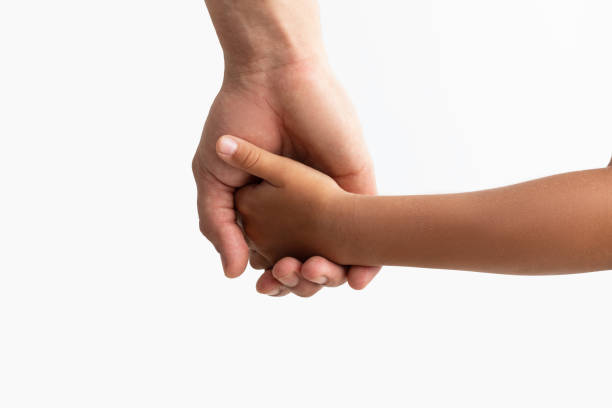Fathers’ rights or dads’ rights Australia is sometimes one of the most contentious topics in family law. This is because there have always been misconceptions around dads’ rights Australia as compared to mothers’ rights.
Dads’ rights in Australia is the same as mothers’ rights in Australia. Australian family law legislation does not give unequal treatment to parents, and it especially does not give preference to one parent over the other.
In this blog about dads’ rights Australia, we will discuss matters related to child custody, or parental responsibility in the context of dads’ rights in Australia.
Dads’ Rights In Australia: Primary Rights
Primarily, both parents have the right to enjoy a meaningful relationship with the child once they have divorced or separated. The Family Law Act (1975) states that the child has a right to enjoy a meaningful relationship with both his/her parents.
This is because the Act places emphasis on the best interests of the child. According to this, the child should be able to communicate with both parents. This is regardless of whether a parent has sole custody, or both parents have joint custody.
When making parenting arrangements after divorce or separation, both parents need to make plans about how a child will spend time with both the mom and dad.
Moreover, if the court is making parenting orders, it will make orders such that both parents get to spend equal time with the child.
Dads’ Rights Australia: Custody Rights
Following a divorce or separation, each parent can have equal custody rights. By custody in Australia, we mean “parental responsibility.” This means that each parent has equal rights and authority to make long-term and short-term decisions in the child’s life.
This can include matters in the child’s day-to-day life such as schooling, food, and health related matters. In Australia, there is a presumption of equal shared parental responsibility. This means that family courts presume that both parents have equal parent responsibility in relation to their child.
Therefore, under dads’ rights in Australia, the father and mother will enjoy equal shared parental responsibility. Only in cases involving family violence or domestic violence will the courts rebut this presumption.
In matters involving family or domestic violence, the court can grant sole parental responsibility to a parent if that is considered to be in the best interests of the child.
However, in normal circumstances, both dads and moms will have equal custody rights.

Making Parenting Arrangements
It is important for both parties to make parenting arrangements for dads to realise their rights in Australia. In case of an amicable separation or divorce, both parties can make parenting plans.
Parenting plans are informal arrangements that two parties make. This can include a variety of matters such as:
- Who the child will live with;
- How the child will divide his/her time between both parents;
- The ways in which the child will communicate with the parent that he/she is not residing with;
- How the child will communicate with other members in the family who are concerned about the care and well-being of the child
Parenting plans are not legally binding. If the parties wish to make the plans legally binding, they can apply for consent orders in the court. Consent orders formalise the parenting plans and make them more legally binding.
Consent orders are court orders, and therefore parties must make applications for consent orders. If any party fails to comply with consent orders, they can be penalised as it is a breach of court orders.
On the other hand, if the parties are unable to make their own parenting plans, they will need to apply for parenting orders.
Courts will make binding parenting orders by considering all circumstances of the case, and assessing the best interests of the child. Most importantly, the court will make parenting orders that will benefit the children.

Can Fathers Have Sole Custody Of The Child?
Depending on the situation of the case, it is possible for the courts to grant sole custody or sole parental responsibility to the father. However, this can be rare because courts give importance to the child having a healthy relationship with both parents.
But in extremely serious cases where one parent has exposed the child to family or domestic violence, the courts will consider granting the other parent sole custody. Moreover, if a parent subjects the child to harm, neglect or abuse (physical, sexual or psychological), the court will grant sole custody to the other parent.
Therefore, if it is found that the mother poses a threat to the safety of the child, then the courts can grant sole parental responsibility to the father.
In the case study of Suskain & Materanzi [2015] FamCAFC 153, the Courts found that the mother repeatedly failed to comply with parenting orders in place. Her non-compliance with court orders and difficulties at changeover would often affect the schooling schedule of the child.
Therefore, the court ordered that the child live with the father, and that the father should have sole parental responsibility.
This case study shows that dads’ rights in Australia is essentially the same as mothers’ rights. The court does not discriminate on the basis of the gender of the parent, but rather considers the best interests of the child always.
Family Lawyers For Fathers
Although our legislation has equal provisions for mothers and fathers, fathers are often sidelined after a divorce or separation. This is because of the traditional notions about a mother being the primary carer of the child.
If you are a father seeking custody rights for your child, it is important that you seek legal advice from expert family law solicitors. Our lawyers at JB Solicitors have helped many fathers to reach mutual agreements with their former spouse.
Our family lawyers have a wealth of experience in handling different family law cases. For more information or other enquiries, please do not hesitate to contact our friendly team.
Reach out to our lawyers for your legal needs.
